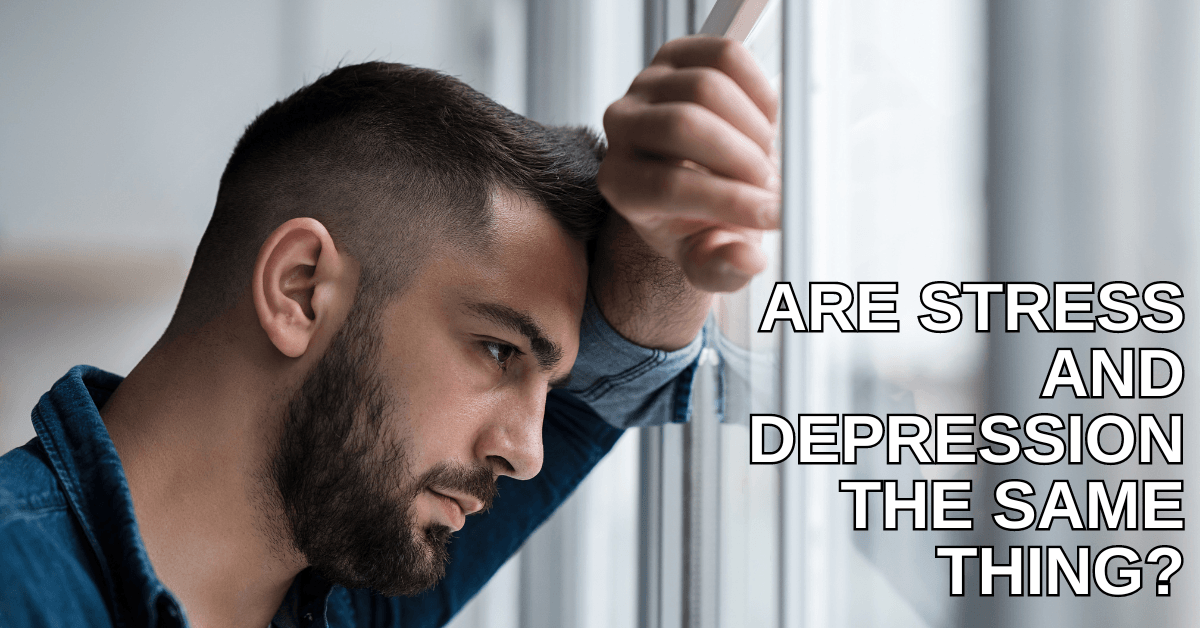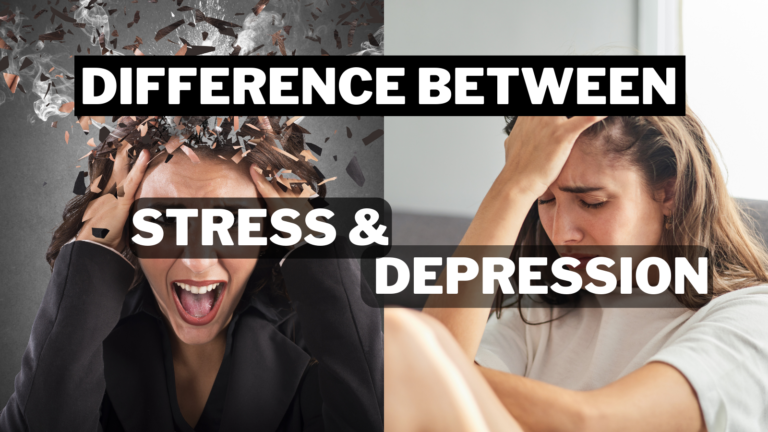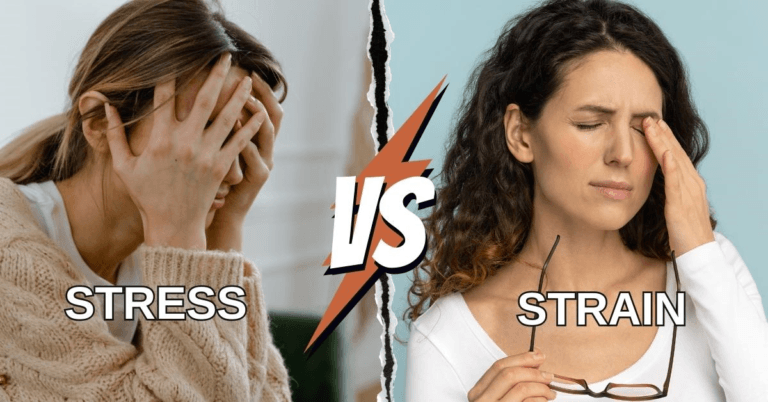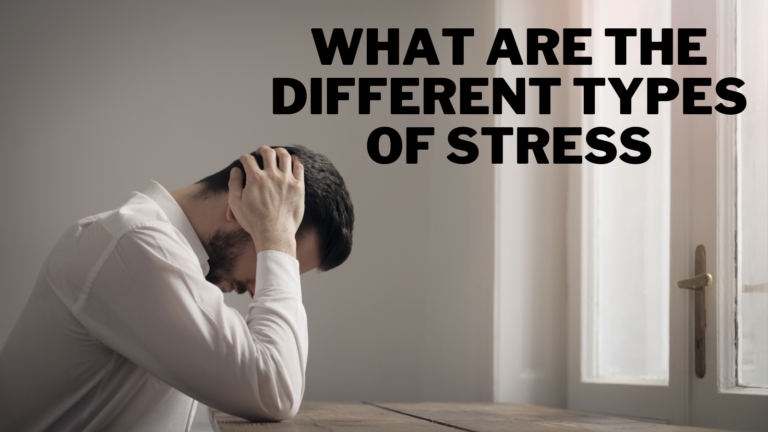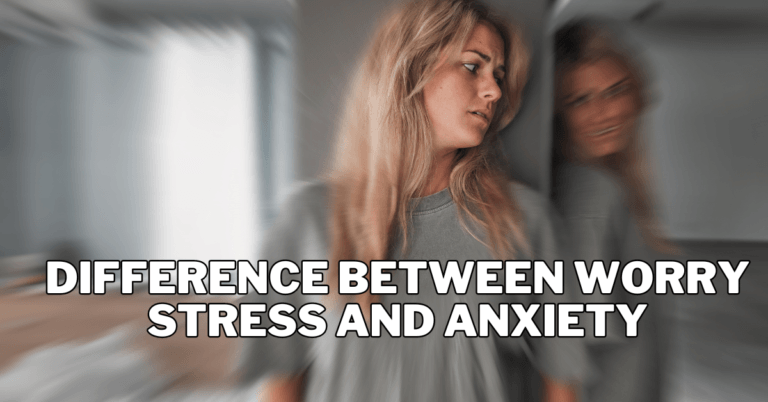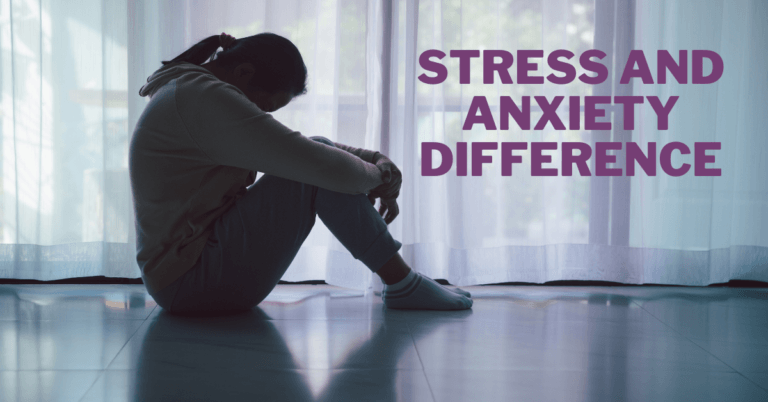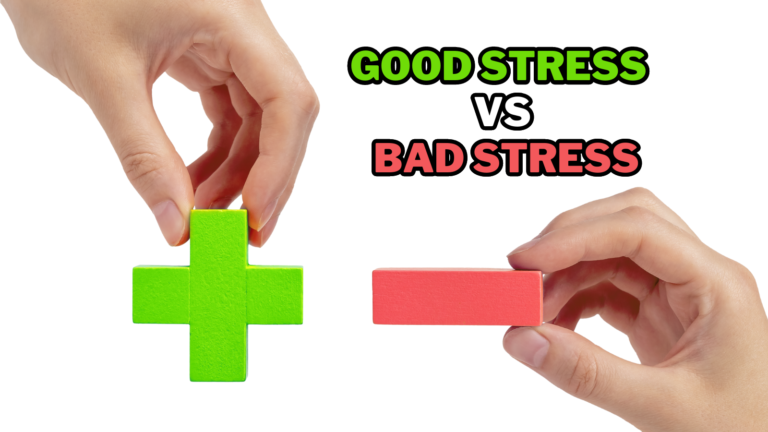Are Stress And Depression The Same Thing
Are Stress And Depression The Same Thing?
In today’s fast-paced world, the terms “stress” and “depression” are often used interchangeably in everyday conversations.
This common misconception overlooks the distinct nature of each condition, leading to confusion and sometimes misinformed health choices.
Understanding that stress and depression are not the same things is essential for addressing these mental health concerns accurately and effectively.
This article aims to demystify the two by exploring their definitions, causes, symptoms, and the relationship between them.
This exploration is rooted in the question: Are stress and depression the same thing? And it seeks to clarify this common confusion.
It empowers individuals to identify their own or others’ mental health struggles accurately, facilitating the pursuit of suitable support and treatment.
This article will endeavour to delineate these conditions to enlighten and encourage a more informed and compassionate understanding of mental health challenges.

Explanation Of Stress
Understanding stress's full complexity is essential for managing its impact on our lives. Stress is not merely a subjective feeling but a tangible, physiological, and psychological reaction to the demands of change.
This reaction encompasses many physical and emotional responses as the body and mind adjust to new circumstances, challenges, or threats.
Essentially, stress sets off the body's defences, releasing a barrage of chemicals and hormones like adrenaline and cortisol to get us ready to take action, either by running away from the situation or facing it head-on.

Causes And Triggers Of Stress
The sources of stress are as varied as life itself, stemming from both external and internal factors. External causes often include:
1. Work-Related Pressures
Deadlines, workload, job insecurity, and interpersonal conflicts within the workplace are common triggers.
2. Relationships
Disagreements, misunderstandings, and the demands of family life or friendships can significantly contribute to stress.
3. Financial Pressures
Concerns over debt, bills, and the ability to provide for oneself or a family can be overwhelming.
4. Major Life Changes
Events such as moving house, changing jobs, getting married, or dealing with the death of a loved one introduce significant shifts in one's life framework, demanding adaptation and often causing stress.
Internal factors can also be crucial in stress, including pessimistic outlooks, unrealistic expectations, rigid thinking, and lack of flexibility in facing life's challenges.
Short-term vs Long-term Stress
Managing the effects of stress requires an understanding of the distinction between acute and chronic stress:
Acute Stress
Acute stress is the body's immediate response to a threat or challenge, lasting for a short period.
It can be beneficial in small doses, providing the energy and focus needed to deal with the situation. This type of stress is typically resolved once the immediate threat is addressed.
Chronic Stress
Chronic stress occurs when stressors persist over an extended period, keeping the body in constant arousal.
Prolonged stress exposure can exhaust the body's resources, resulting in major health problems like high blood pressure, heart disease, mental health disorders, and immune system weakness.
Symptoms Of Stress
Exploring Wether Stress And Depression Are The Same Thing
The exploration of whether are stress and depression the same thing underlines the importance of understanding and managing stress effectively.
Understanding these aspects of stress—not just its causes and symptoms but also distinguishing between its acute and chronic forms—is pivotal in adopting effective coping mechanisms.
Learning when to seek help, implementing stress management strategies, and changing lifestyle choices can greatly improve one's quality of life and considerably reduce stress levels.

Explanation Of Depression
It is essential to comprehend depression to appreciate the effects it has on both people and society.
Prolonged feelings of melancholy and hopelessness, as well as disinterest or lack of enjoyment in once-fulfilling or enjoyable activities, are hallmarks of depression, a complex mood disorder.
A person's feelings, thoughts, and ability to go about daily tasks like eating, sleeping, and working are all significantly impacted.
It is important to recognize that depression is a serious medical condition that needs to be understood and treated, not just a passing mood swing or a sign of weakness.

Causes And Risk Factors Of Depression
The etiology of depression is a result of the intricate interaction between genetic, biological, environmental, and psychological factors.
1. Genetic
A family history of depression can increase the risk, suggesting a genetic vulnerability to the disorder.
2. Biological
Imbalances in neurotransmitters, the chemicals in the brain that regulate mood and emotions, play a significant role. Changes in the brain's structure and function may also contribute.
3. Environmental
Depression may be more common in certain people if they are constantly exposed to violence, abuse, neglect, or poverty.
4. Psychological
Personality traits such as low self-esteem, being overly dependent, self-critical or pessimistic, and certain life events, including trauma, loss of a loved one, a difficult relationship, or any stressful situation, significantly contribute to the onset of depression.

Symptoms Of Depression
Depression can cause a wide range of symptoms that impact the body as well as the mind. Key symptoms include persistent sadness, anxiety, or “empty” feelings, feelings of hopelessness or pessimism, irritability, feelings of guilt, worthlessness, or helplessness.
Changes in sleep patterns (insomnia or oversleeping), changes in appetite or weight, decreased energy or fatigue, and physical symptoms that are not explained by another medical condition (e.g., headaches, digestive problems).
Loss of interest in activities or hobbies once enjoyed, including sex, withdrawal from social interaction, and thoughts of death, suicide, or suicide attempts.

Types Of Depression
Several forms of depression vary in severity and duration. Key types include:
1. Major Depressive Disorder (MDD)
Severe symptoms that make it difficult to work, sleep, study, eat, and enjoy life are the hallmarks of major depressive disorder (MDD). A person may have one episode in their lifetime, but they often have multiple episodes.
2. Persistent Depressive Disorder (Dysthymia)
A chronic form of depression where moods are consistently low for two years or more, though the symptoms may not be as severe as those of major depression.
3. Bipolar Disorder
It is not strictly a type of depression. Still, it encompasses both periods of extremely high mood or irritability and periods of extremely low mood that satisfy the criteria for major depression (referred to as “bipolar depression”).
Understanding these aspects of depression is vital for early identification, empathy towards those affected, and guiding effective treatment strategies.
It emphasizes the importance of expert assistance and that the right care makes recovery possible.
Differences Between Stress And Depression
The differences between stress and depression are crucial to understand, as they inform the approach to treatment and management of these conditions.
While stress and depression can sometimes overlap, they are fundamentally distinct in their causes, symptoms, duration, and effects on health.
1. Nature And Causes
Stress is a reaction to feeling pressured or threatened. It's closely tied to specific external factors or situations, such as work deadlines, financial difficulties, or family problems.
Stress is often temporary, and its intensity can decrease once the external situation is resolved or managed.
A persistent sense of melancholy, hopelessness, and disinterest in life, on the other hand, are hallmarks of depression.
Unlike stress, depression can develop without an obvious external cause and can persist for long periods, often requiring professional treatment to manage.
2. Symptoms and Duration
Stress symptoms are primarily responses to perceived threats and can include increased heart rate, anxiety, and a sense of being overwhelmed.
These symptoms typically subside as the stressful situation is resolved. In contrast, depression affects one's emotions, thoughts, and physical health more deeply.
There are symptoms like pervasive sadness, loss of interest in enjoyable activities, changes in appetite, sleep disturbances, and thoughts of death or suicide.
While stress is usually short-lived, depression is more enduring and can significantly impact an individual's ability to function over weeks, months, or even longer.
3. Impact On Health
Both stress and depression can adversely affect health, but the nature and severity of their impact can differ significantly.
Stress
Short-term stress can boost the immune system and motivate individuals to face challenges.
However, chronic stress can lead to serious health issues, including cardiovascular disease, diabetes, high blood pressure, anxiety disorders, and a weakened immune system.
Chronic stress weakens the body's resilience, making it harder to cope with additional stressors.
Depression
The health risks associated with untreated depression are more severe and long-term compared to stress.
Depression can contribute to a range of physical health problems similar to those associated with chronic stress but can also significantly increase the risk of substance abuse, eating disorders, self-harm, and suicidal thoughts or actions.
Furthermore, depression can seriously hinder a person's capacity to take care of themselves, interact with others, go to work or social events, and enjoy life, which can set off a vicious cycle of deteriorating mental and physical health.
Addressing the question, “are stress and depression the same thing?” highlights the necessity of differentiating between these conditions to ensure proper treatment and support.
While stress, especially when chronic, requires management strategies and possibly professional intervention, depression almost always necessitates professional treatment, including therapy and medication.
Acknowledging these distinctions not only helps in providing appropriate care but also in reducing the stigma associated with mental health issues, emphasizing that both conditions are significant but manageable with the right support and interventions.

Management And Treatment
Effective management and treatment approaches for stress and depression are crucial for improving quality of life and preventing the escalation of these conditions into more serious health issues.
Clarifying that “are stress and depression the same thing” illuminates the necessity for differentiated management and treatment strategies for these distinct conditions.
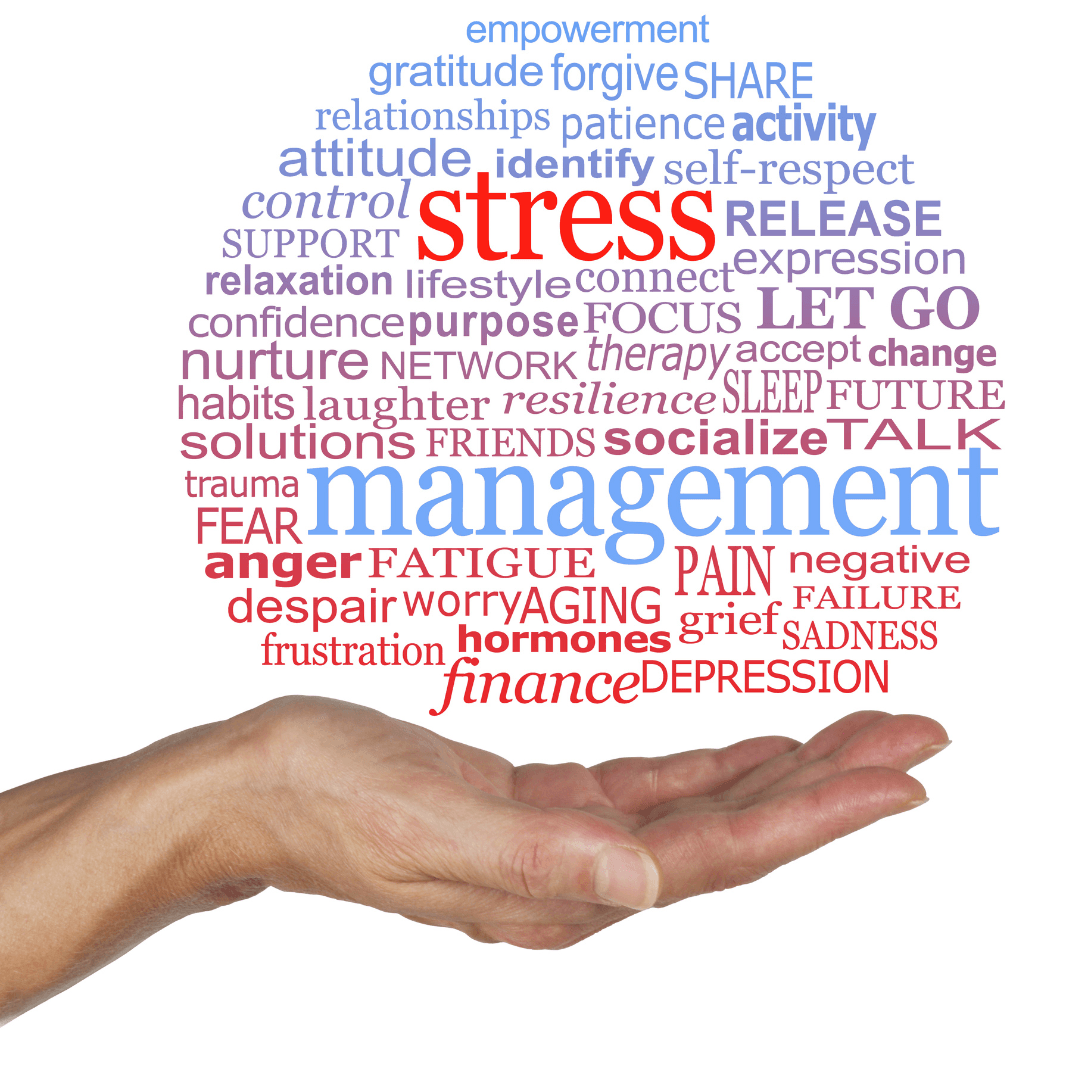
Stress Management Techniques
Managing stress involves recognizing stressors, implementing lifestyle changes, and adopting strategies to reduce stress levels. Here are some effective techniques:
1. Exercise
Regular physical activity is one of the best ways to relieve stress. It releases endorphins, the body's natural analgesics and mood enhancers. These chemicals improve mood, improve physical health and reduce anxiety.
2. Relaxation Techniques
Deep breathing, meditation, yoga, and progressive muscle relaxation can decrease the body's stress response by promoting relaxation and increasing joy and serenity.
3. Time Management
Effective time management allows for a more balanced life, reducing stress levels by preventing overcommitment and allowing time for rest, hobbies, and social activities.
4. Seeking Social Support
A strong support network of friends, family, and colleagues can provide emotional support and practical help during stressful times, making problems seem more manageable.
5. Mindfulness
Being fully present and involved in the moment is a key component of mindfulness, which helps lower stress by avoiding overanalyzing concerns from the past or the future.
Treatment For Depression
Depression treatment often requires a multi-faceted approach involving professional help and sometimes a combination of psychotherapy, medications, and lifestyle adjustments.
1. Psychotherapy
Speaking with a mental health professional about your thoughts and feelings is the goal of psychotherapy, also sometimes known as talk therapy or counselling.
Finding the root causes of depression and creating coping mechanisms for them can be aided by it. Cognitive-behavioural therapy (CBT) is particularly effective for treating depression, as it focuses on changing negative thought patterns and behaviours.
2. Medications
Antidepressant medications can help correct chemical imbalances in the brain that contribute to depression.
It's often necessary to try several different medications or a combination under the guidance of a healthcare provider to find what works best for an individual.
3. Lifestyle Adjustments
Lifestyle changes can support other treatment efforts and improve overall well-being. These include maintaining a healthy diet, ensuring regular sleep patterns, engaging in regular physical activity, reducing alcohol and drug use, and pursuing hobbies and activities that bring joy.
4. Support Groups
In addition to offering mutual support and a sense of community, joining a support group can lessen the isolation that is frequently linked to depression.
Grasping the nuances of “are stress and depression the same thing?” is essential for recognizing the need for professional intervention in cases of depression.
While stress management techniques can be implemented independently or with minimal guidance, depression often requires more structured and professional intervention to manage and treat the condition effectively.
People who exhibit symptoms of depression should consult a professional as soon as possible, as treatment can improve long-term results and stop the illness from getting worse.
Expert Opinions
Dr. Jane Smith, a clinical psychologist with over 20 years of experience, emphasizes that while stress and depression can share some overlapping symptoms, they are fundamentally different conditions.
She explains that stress is a response to a perceived threat or demand, often tied to specific external factors and usually temporary.
It activates the body's “fight or flight” response, preparing it to face or escape the stressor. Once the situation is resolved, stress levels typically subside.
Conversely, depression, according to Dr. Smith, is a clinical mood disorder marked by enduring melancholy, hopelessness, and disinterest in life.
Unlike stress, depression does not necessarily need an external trigger and can affect an individual's ability to function for weeks, months, or even longer.
“Depression alters how you think, feel, and handle daily activities,” she says, underscoring the pervasive nature of the disorder.
Psychiatrist Dr. Michael Brown adds that depression involves significant changes in brain chemistry and function.
He highlights the importance of recognizing when symptoms go beyond normal stress responses, advising, “If feelings of sadness or disinterest persist and start to interfere with one's daily life, it's crucial to seek professional help.”
These insights from mental health professionals underline the importance of distinguishing between stress and depression for accurate diagnosis and treatment.
Their expertise reinforces that understanding these differences is key to seeking appropriate care and support.
Debunking Myths
Dispelling the myth “are stress and depression the same thing?” is crucial for promoting a deeper comprehension and empathy towards these distinct mental health challenges.
Here are key misconceptions and the truths that dispel them:
Myth 1: Depression Is Just A Result Of Poor Coping Skills.
Many believe that depression stems solely from an inability to handle life's challenges effectively. That being said, this oversimplifies a difficult situation.
Many biological, psychological, environmental, and genetic factors all play a role in the complex disorder known as depression.
While stress management techniques can improve overall mental health, they are not a cure-all for depression.
Professional treatment, such as medication and therapy, is often necessary to address the underlying causes and symptoms of depression.
Myth 2: Stress Is Always Harmful
Stress is commonly perceived as inherently negative, yet it plays a crucial role in human survival.
The body's stress response system is designed to help us deal with immediate threats, enhancing focus, energy, and readiness to respond.
This “acute stress” can be beneficial, motivating us to take action and solve problems. Chronic stress, however, when prolonged and unmanaged, can lead to health problems.
To determine when stress becomes harmful and calls for intervention, it is critical to understand the distinction between acute and chronic stress.
Addressing these myths not only helps correct misinformation but also reduces the stigma associated with stress and depression.
By promoting a more nuanced understanding of these conditions, we can encourage individuals to seek help without judgment and support others with empathy and understanding.
Conclusion
In conclusion, while stress and depression are interconnected and can influence one another, they are fundamentally distinct conditions.
Understanding the differences between these conditions is crucial for proper diagnosis, treatment, and support.
Stress management techniques and lifestyle changes can be effective in mitigating stress, but depression often requires a more comprehensive approach, including professional therapy and medication.
Understanding that “are stress and depression the same thing” underscores their distinct nature, guiding more effective and targeted approaches to mental health care.
It's a critical step toward promoting mental health and well-being in our communities, empowering individuals to lead healthier, more fulfilling lives.
I trust you enjoyed this article on Are Stress And Depression The Same Thing? Please stay tuned for more blog posts soon. Take care!
JeannetteZ
>>>Please click here to read my all-inclusive article about Lessons That Will Teach You All About Stress<<<
>>>Are you interested in Natural Healing And Stress Relief through Herbs? Please click here for my #1 Recommendation<<<
Your Opinion Is Important To Me
Thoughts? Ideas? Questions? I would love to hear from you. Please leave me your questions, experience, and remarks about the article Are Stress And Depression The Same Thing in the comments section below. You can also reach me by email at Jeannette@Close-To-Nature.org.
Disclosure
This post may contain affiliate links. I earn from qualifying purchases as an Amazon Associate and other affiliate programs. Please read my full affiliate disclosure.
You might also enjoy these blog posts:
The Impact Of Stress On Your Body
Essential Gardening Tools And DIY Storage Ideas
How To Train A Puppy To Use A Pee Pad
Best Games To Play With Your Dog At Home

